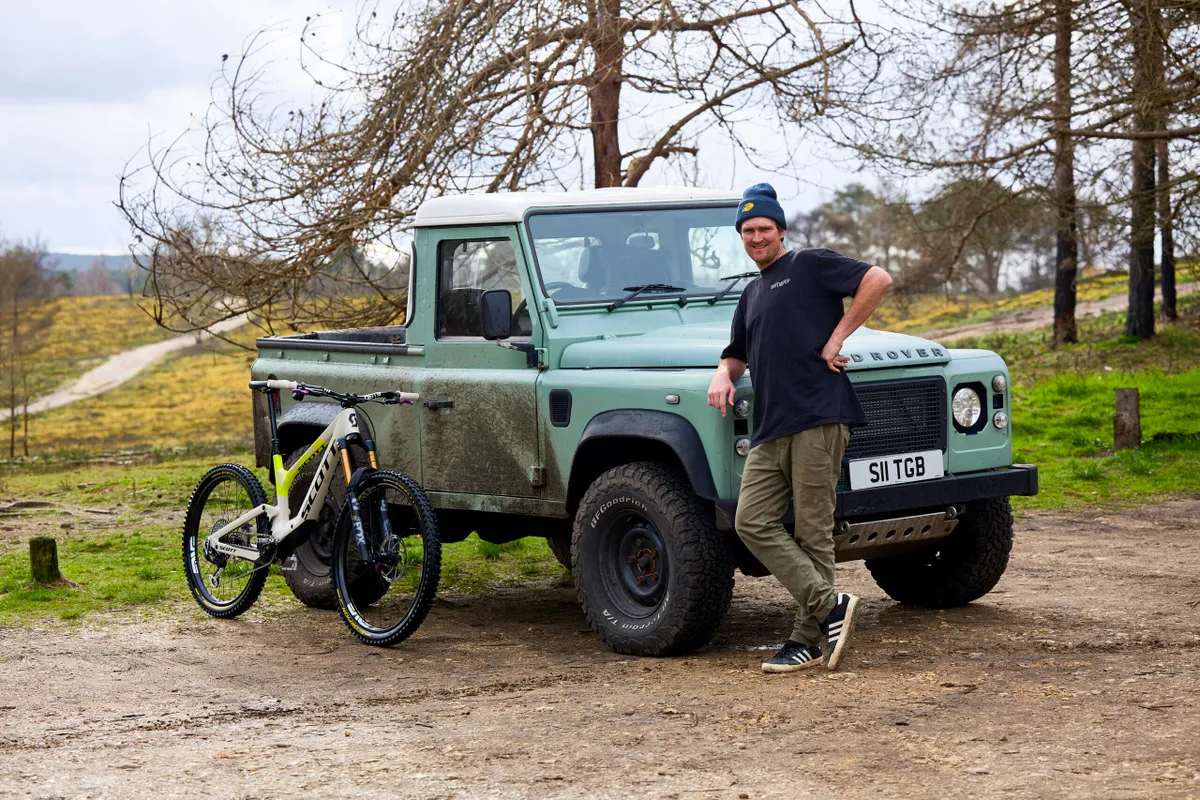Brendan Fairclough is synonymous with the UK downhill and freeride scene, with eight World Cup podiums and three top-10 finishes at RedBull Rampage.
Away from the race track, he is also well known for his on-screen antics, with Deathgrip one of the most memorable mountain bike movies of the past decade – and a sequel due to be released soon.
We caught up with Brendan and his recently delivered Scott Ransom in the Surrey Hills to talk through his preferred setup for hitting up Megavalanche and the Trans Madeira this year.
Hidden shock
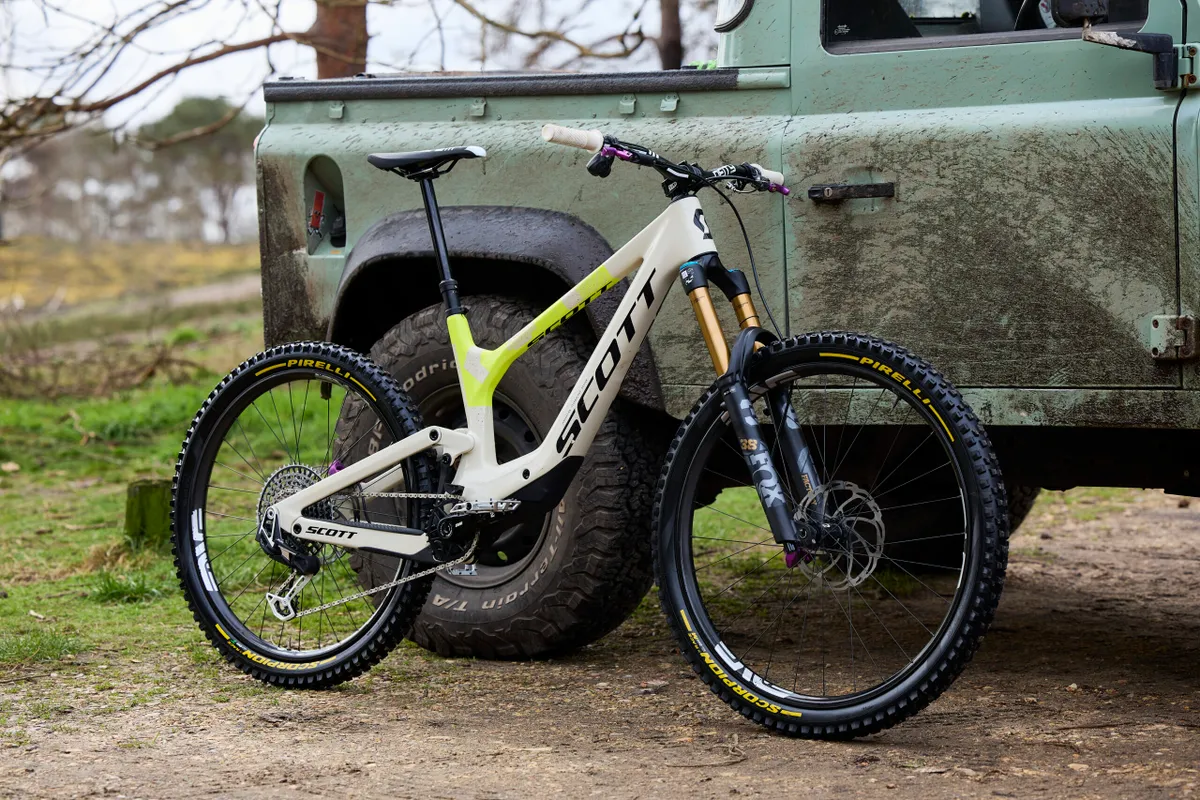
Being a Scott-supported rider, Fairclough got his hands on the new Ransom early on and is repping the high-end HMX carbon fibre RC frame.
The new bike features the same integrated shock design we’ve seen on the Scott Spark and Genius, except it's used in combination with a six-bar linkage.
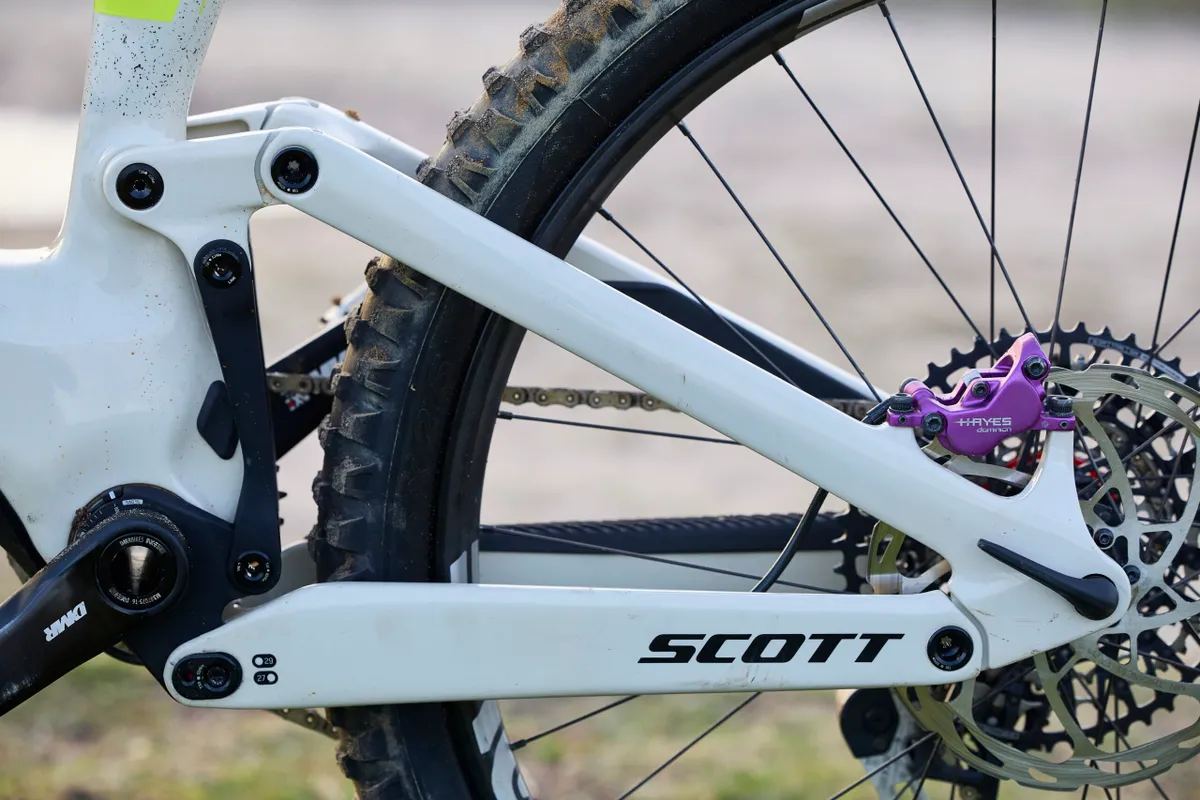
Fairclough says positioning the shock here helps to keep the centre of gravity low, and that much like any vehicle designed to go around corners fast, it helps with cornering characteristics.
The six-bar linkage uses a concentric bottom bracket main pivot, which is said to aid stiffness in the linkage and make for a stronger bottom bracket area.
Scott says the design has enabled it to separate the axle path and shock actuation, and independently tune leverage rate, anti-squat and anti-rise.
Downhill-focused suspension
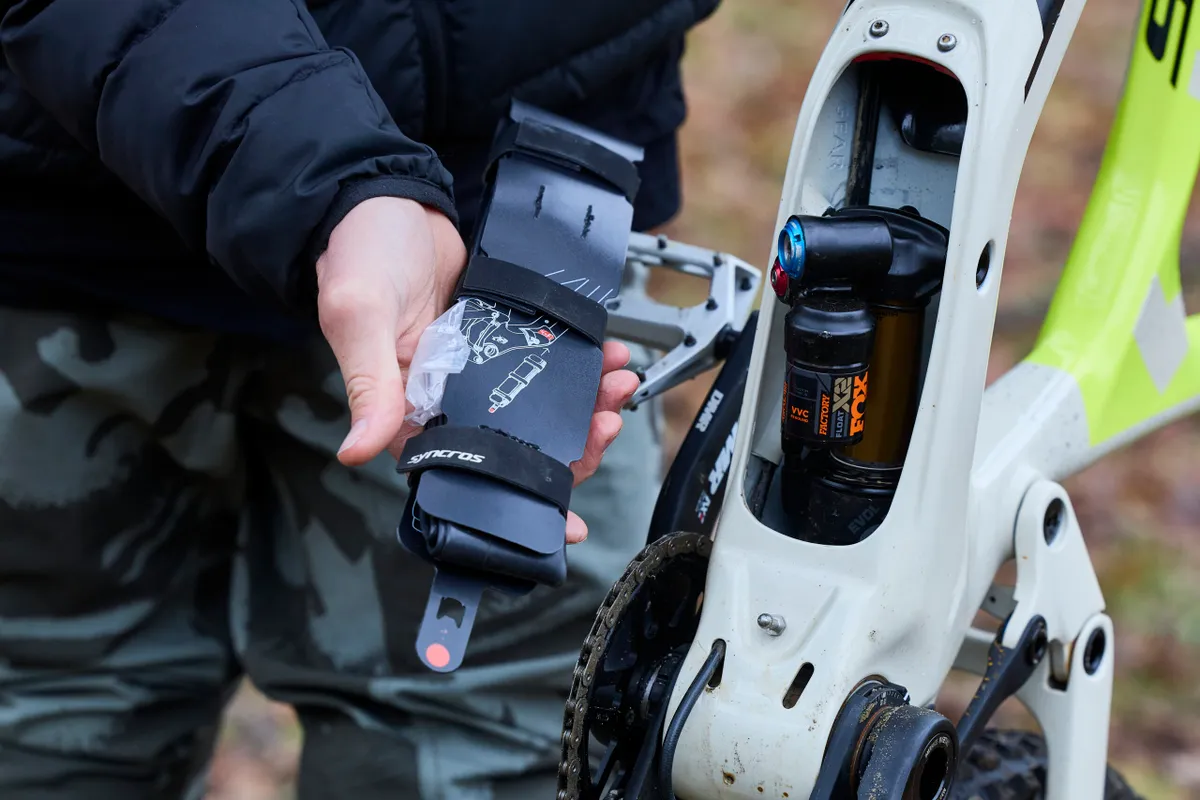
Fairclough has opted for a Fox Float X2 Factory rear shock instead of the Float X Nude supplied with the bike.
The Float X Nude comes equipped with Scott’s TracLoc system, which enables you to adjust the ramp-up on the shock to suit downhill, trail riding or climbing.
Fairclough says he has the Scott Genius in his stable to tick off those last two settings, choosing to give his Ransom a more downhill focus with the X2 rear shock.
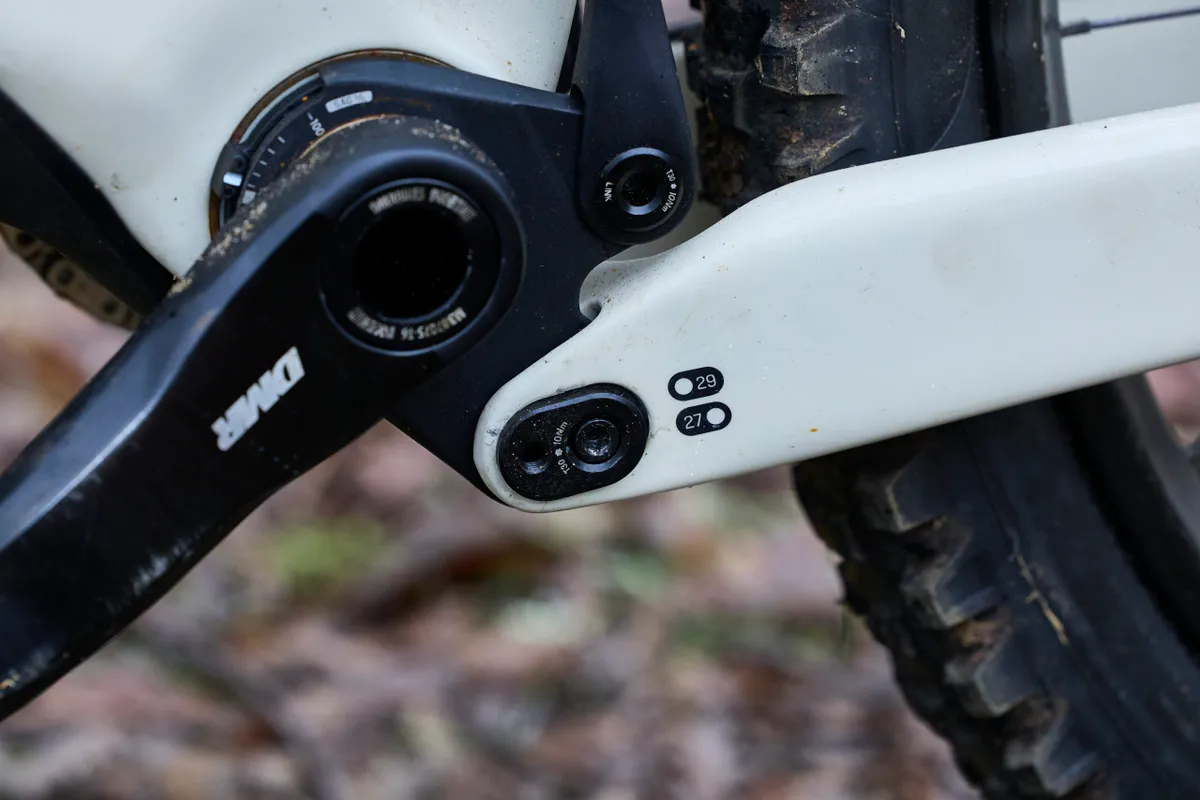
A flip chip in the rear linkage enables the bike to be set up with 29in wheels or as a mullet. Fairclough prefers the later, with a 29in wheel up font and a 27.5in at the back.
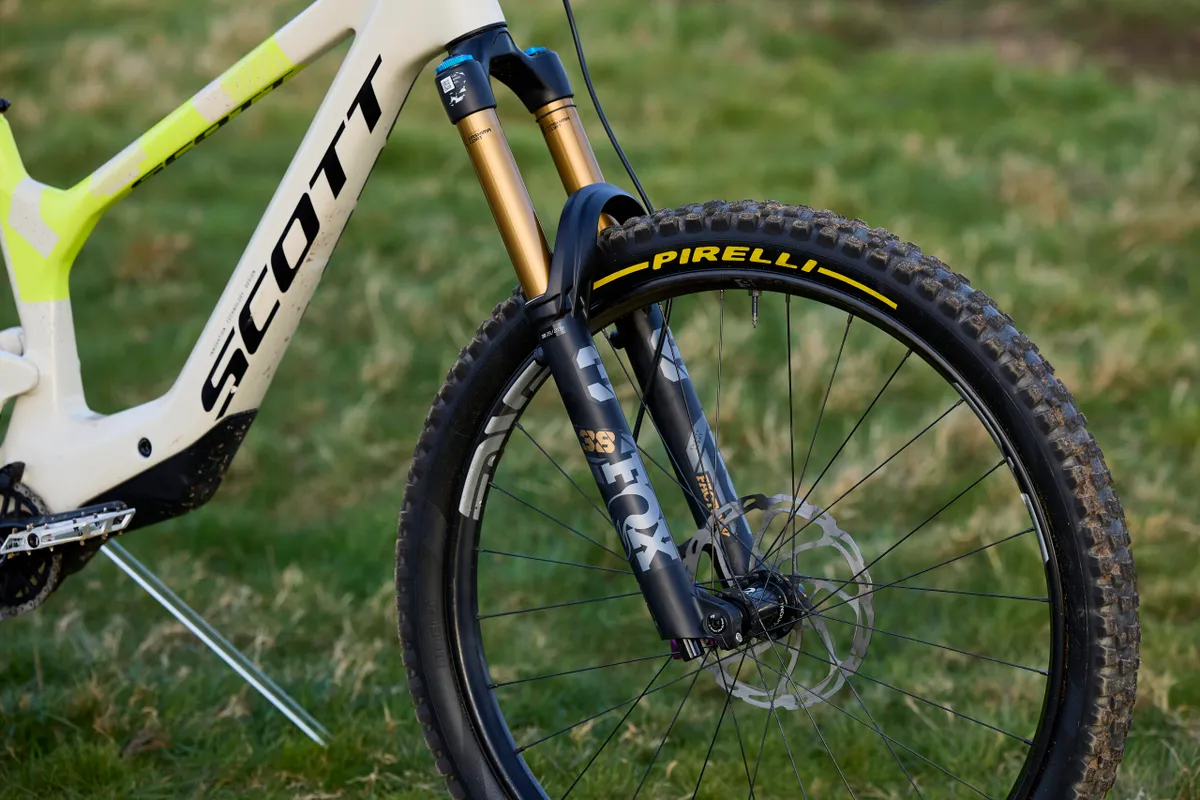
Fox’s 38 Factory fork is used to support the front of the bike, with Fairclough running 100psi and four tokens to create a progressive feel.
Signature series

For the cockpit, Fairclough's signature Deity BF handlebar is cut down to 780mm and used alongside his well-known DMR Deathgrip grips.
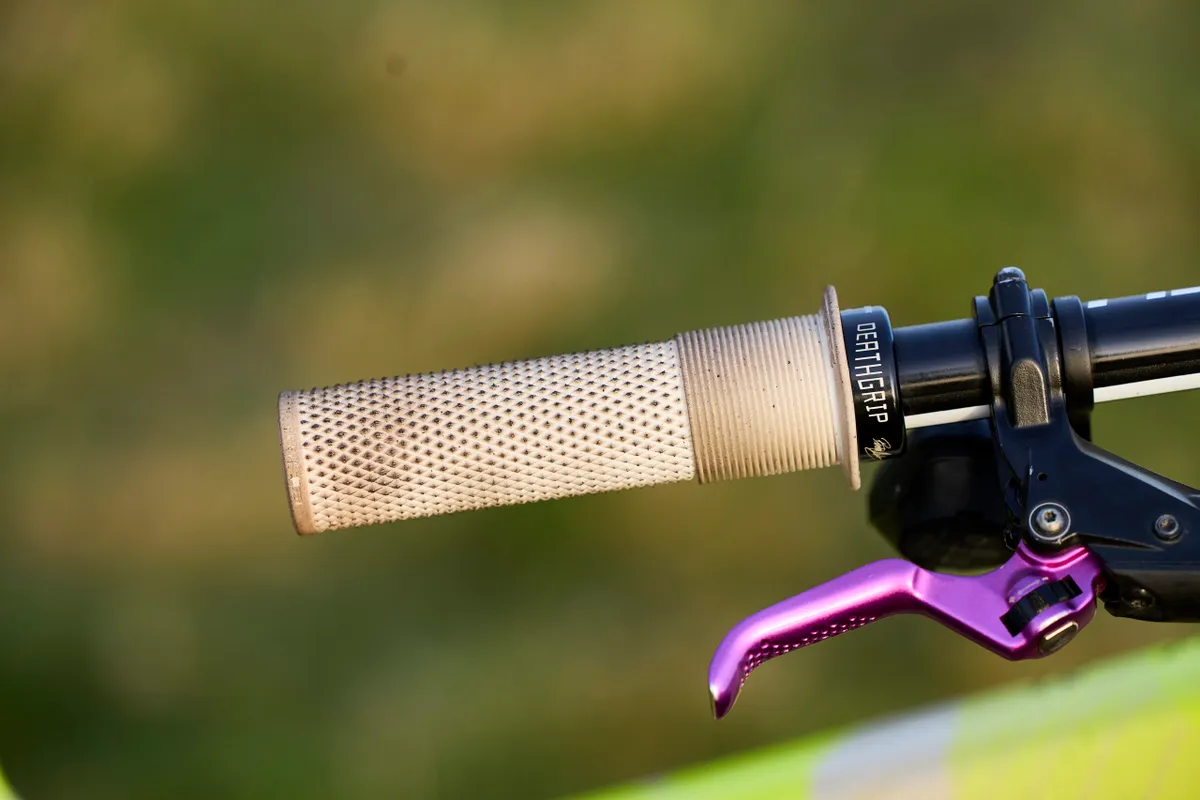
Fairclough prefers a 31.8mm alumnium handlebar, saying he finds carbon bars are too stiff and transfer too much feedback.
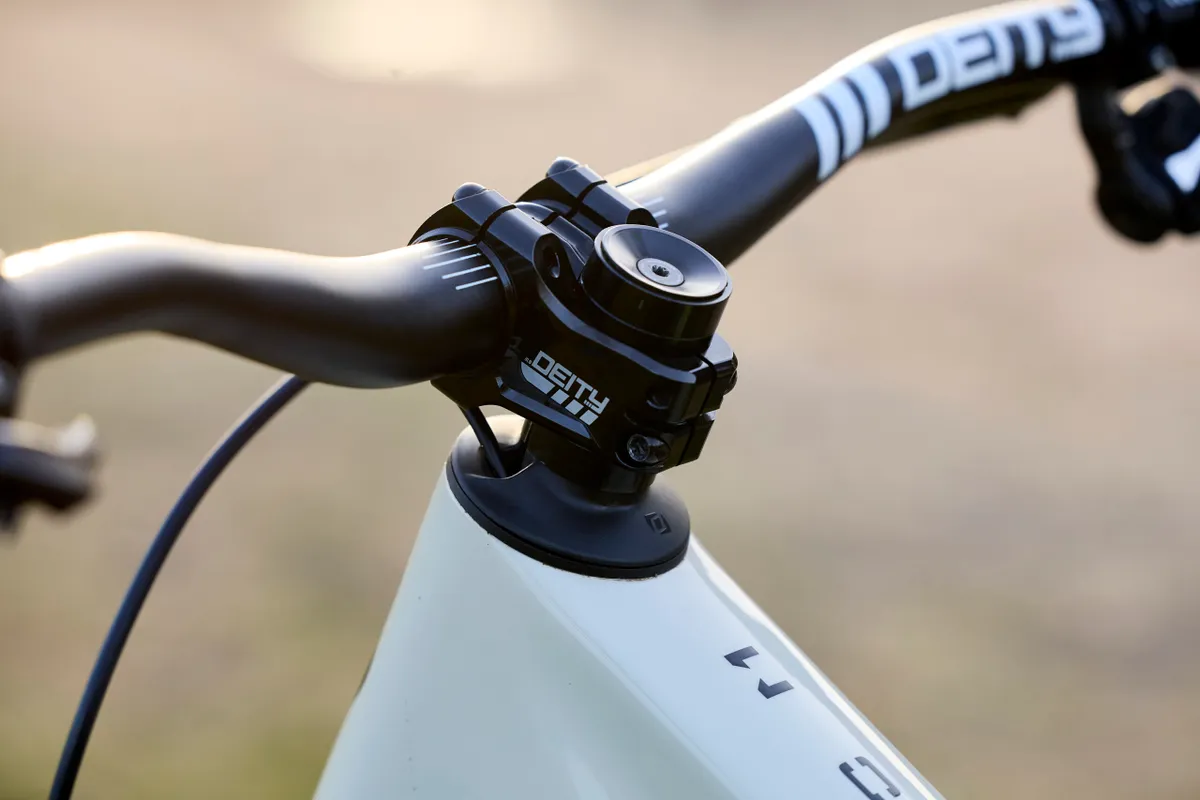
Connecting the bar to the fork steerer is an unreleased Deity Copperhead 42mm stem that sits between the brand's current offerings of 50mm and 35mm.
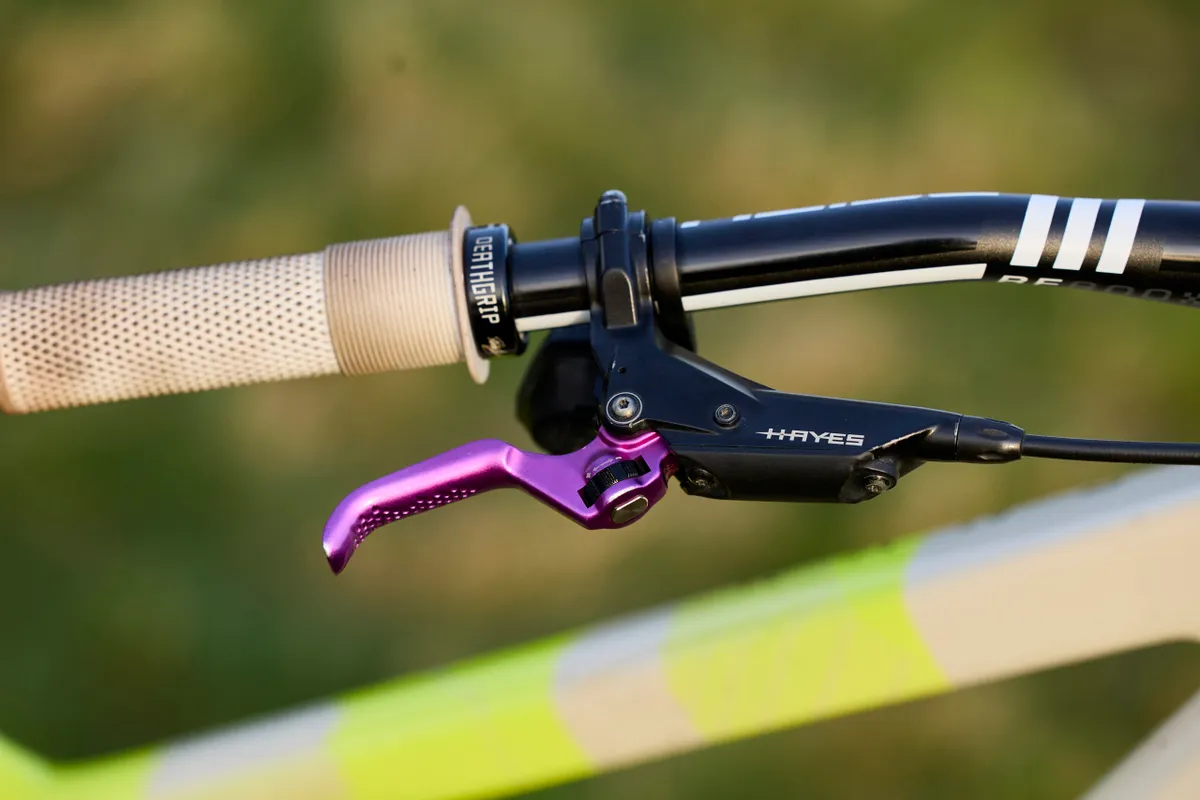
When not Deathgripping, Fairclough uses Hayes Dominion brakes to slow himself down, with these ones being the A4 Purple Editions featuring the classic Hayes logo for a touch of nostalgia.
Finishing off the contact points is a Deity Speedtrap saddle and Brendog edition DMR Vault pedals.
DMR drivetrain
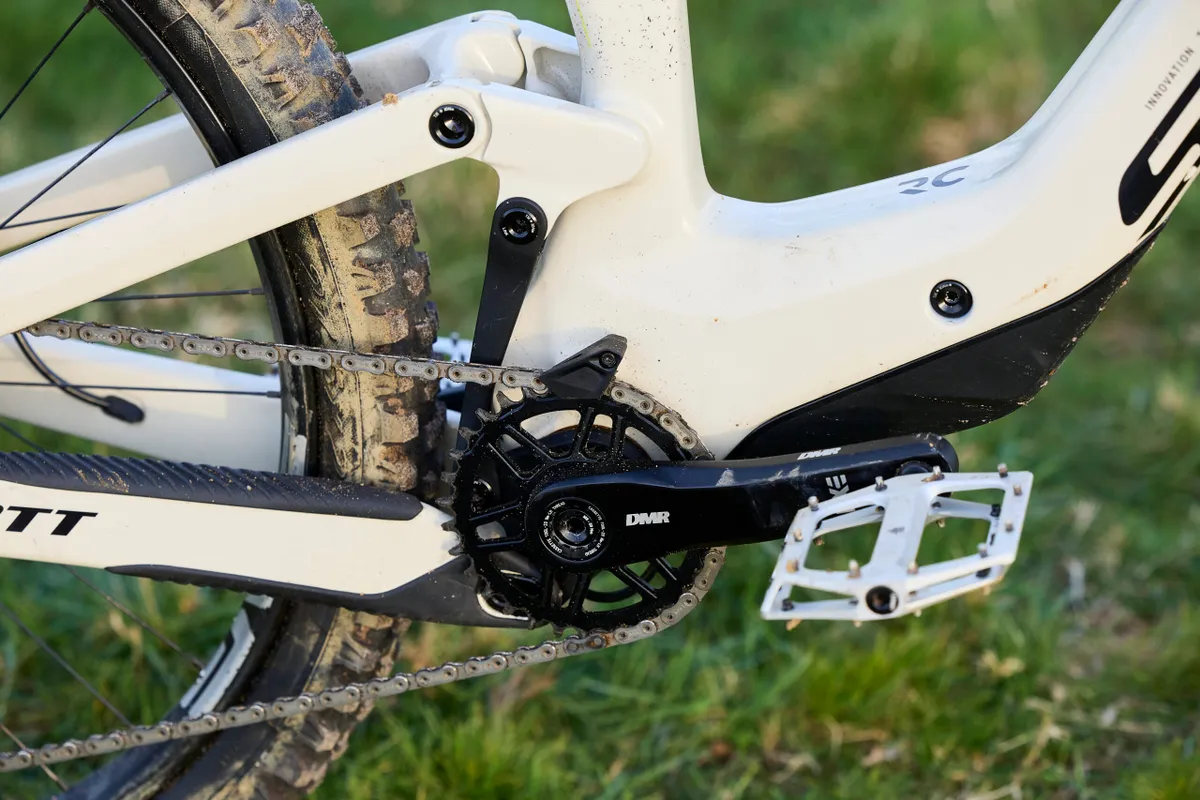
DMR also features in the drivetrain, with 165mm Axe cranks used to keep rock strikes at bay. Shifting is taken care of by SRAM’s XX AXS Transmission.
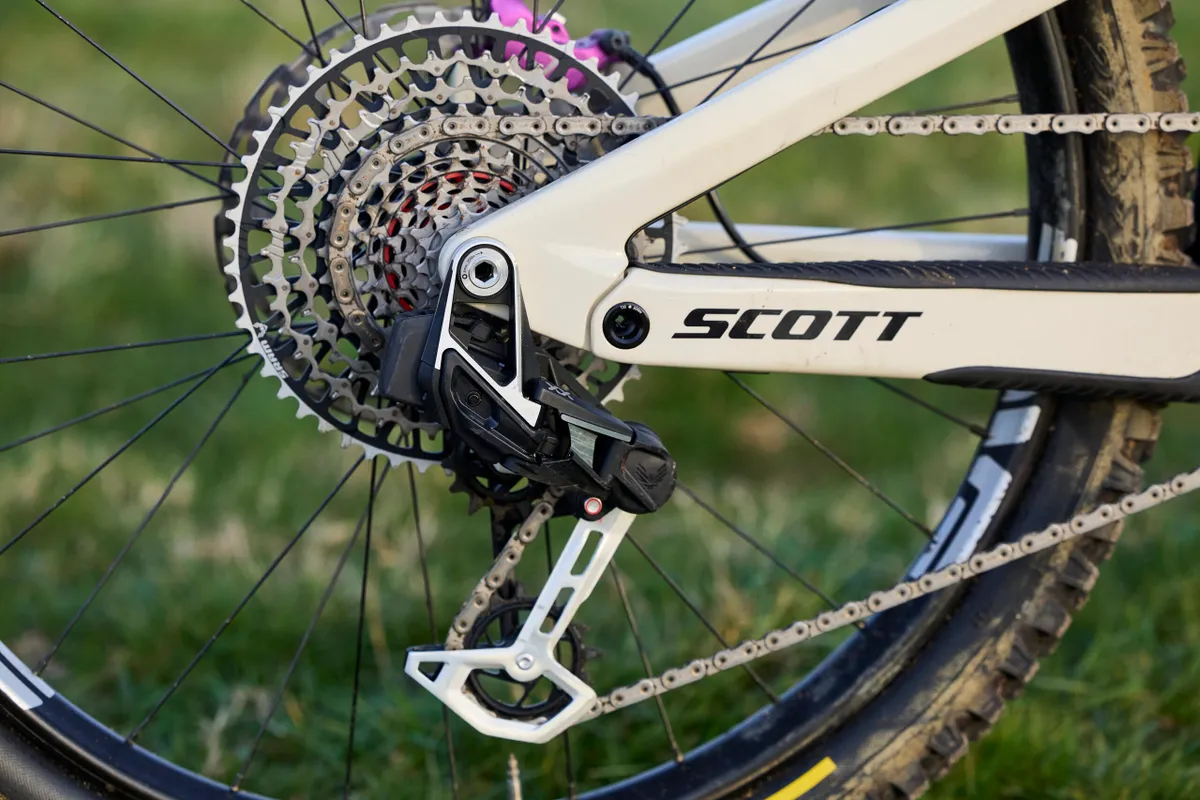
Fairclough says he’s a big fan of electronic shifting after an accident at Rampage seven years ago saw him dislocate both of his tumbs – ouch.
ENVE prototypes
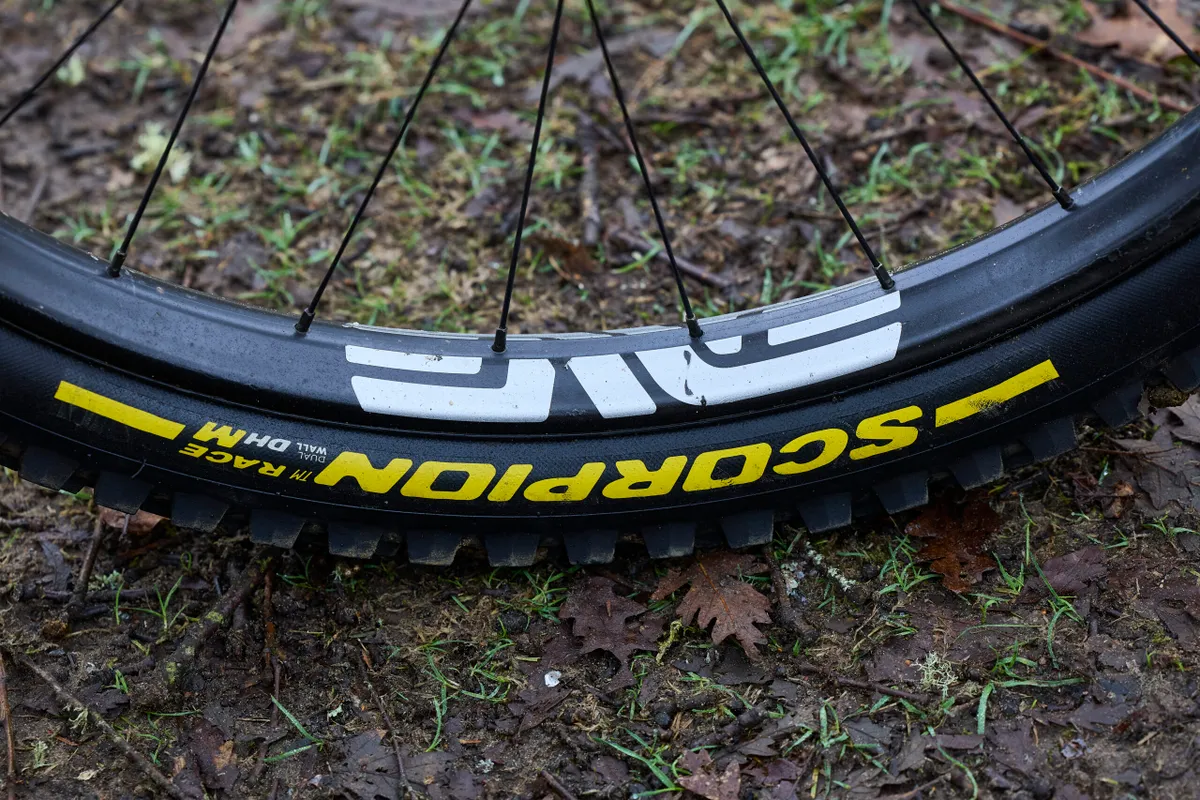
The bike rolls on prototype ENVE wheels, which Fairclough says will be the new M-series model, specifically the M9.
A smaller side section is said to offer more compliance, giving you better feedback from the trail below.
Fairclough says this doesn’t sacrifice stiffness, with the wheel still offering plenty of pop in the corners.
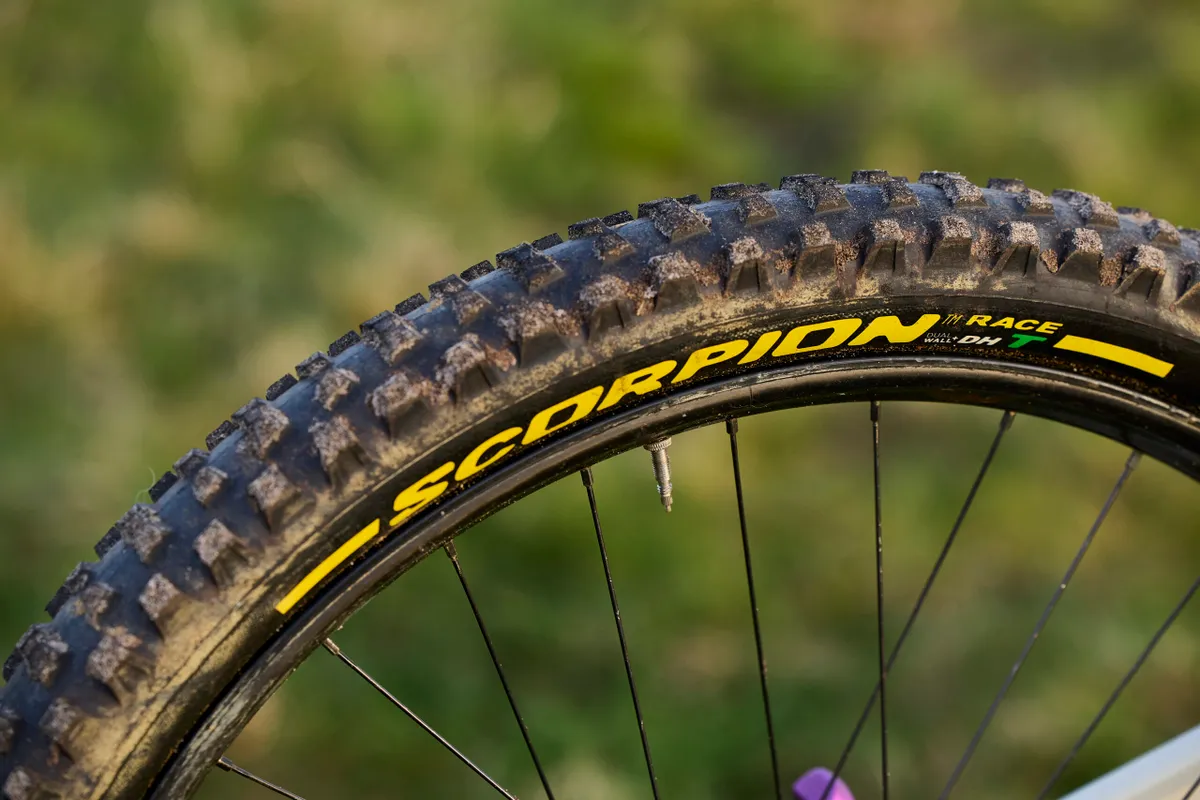
Pirelli rubber covers both wheels, with Fairclough using a Scorpion Race M and a Scorpion Race T at the rear, both with downhill casings.
